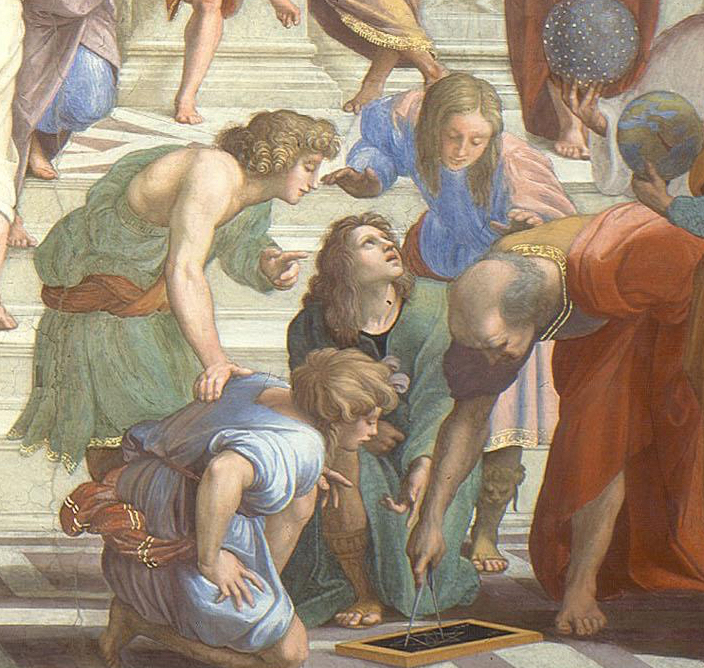"To speak first about my temperament," says François, Duc de La Rochefoucauld in his brief Self Portrait, "I am melancholic -- so much so that I have scarcely been seen to laugh more than three or four times in the last three or four years." The more we study these maxims, the more we come to understand why laughter was so rare in his life. Taken separately or together, the maxims of La Rochefoucauld present one of the most steadily gloomy pictures of human character ever penned.
The major events of his life contributed to, and undoubtedly helped to form, La Rochefoucauld's pessimistic view of human motivation. He started off with every advantage: born in 1613 into one of the leading aristocratic families in France, he studied Latin, mathematics, fencing, dancing, heraldry and etiquette. He entered military service as the commander of a regiment at the age of 15. He seemed destined for influential roles in the affairs of his time.
But, through bad fortune or flaws of character, La Rochefoucauld became entangled in a series of ill-fated enterprises. In 1636 he involved himself in an abortive political intrigue. He was detected and imprisoned in the Bastille. After his release he was banished to his family estate in the country. Back in Paris in 1646, he intrigued his way into more doomed political and sexual escapades. In 1652 he was temporarily blinded by a musketball during a violent political turmoil. In the meantime, one of his country estates had been razed, ruining him financially. Life, up to this point, had taught him that friendship, loyalty, altruism, and even love itself were nothing more than elaborate façades built to protect and disguise the ego, that self-centered, neversleeping core of every personality that La Rochefoucauld identified as Amour-Propre.
After yet another term of banishment to his remaining country estate, he returned to Paris in 1659, this time to lead a quieter life in the salon of his friend, Madame de Sablé. The participants in this salon played a kind of intellectual game called "sentences." The procedure was for one person to toss out an idea for discussion -- any idea from any area of life except for religion and politics, those topics being deemed too emotionally charged and politically dangerous to allow for civilized discourse. The group would then discuss the idea, refining and expanding on the notion and its implications.
La Rochefoucauld found this exercise very stimulating. Back in his apartments, he would spend hours polishing the ideas -- his own and others put forth by members of the salon -- into maxims: concise, elegantly phrased statements that most perfectly captured the observation. These ideas were not meant to be simply opinions: they represented, for la Rochefoucauld, "la loi dans la nature": the laws of human nature, counterparts to the laws that governed inanimate objects in physics and chemistry.
La Rochefoucauld's maxims achieved popularity first within his circle -- then beyond. He was surprised, and annoyed, to discover in 1663 that a Dutch printer had printed a version of the maxims without his consent. To set the record straight, and to include only those maxims which he has composed, he issued his own version in 1665. Several editions were printed in La Rochefoucauld's own lifetime, and they have remained in print ever since.
The success of the maxims was one of the last joys that la Rochefoucauld would ever know. In 1670 his wife died. In 1672, his mother passed away. Also in that year, his two sons died in the French invasion of Holland. "I have seen La Rochefoucauld weep with a tenderness that made me adore him," said his friend, Madame de Sevigné.
In 1680, worn out with disappointments, sorrow, and physical pain, La Rochefoucauld accepted the last sacraments from Bishop Bossuet.
"Equally well adapted, with poetry, to the traveler's need, are collections of aphorisms or maxims. If they are good-and they must be very good indeed; for there is nothing more dismal than a "Great Thought" enunciated by an author who has not himself the elements of greatness-maxims make the best of all reading. They take a minute to read and provide matter upon which thought can ruminate for hours. None are to be preferred to La Rochefoucauld's. Myself, I always reserve my upper left-hand waistcoat pocket for a small sexto-decimo reprint of the Maximes. It is a book to which there is no bottom or end. For with every month that one lives, with every accession to one's knowledge, both of oneself and of others, it means something more. For La Rochefoucauld knew almost everything about the human soul, so that practically every discovery one can make oneself, as one advances through life, has been anticipated by him and formulated in the briefest and most elegant phrases." -- Aldous Huxley, "Along the Road"




